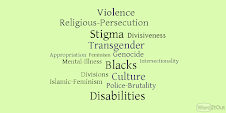The Electoral College is an indirect election. In other words, ordinary citizens of the
In this process it is understood in many states that winner takes all. Most states allow voters to choose between statewide slates of electors pledged to vote for the Presidential and Vice Presidential tickets of various parties; the ticket that receives the most votes statewide 'wins' all of the votes cast by electors from that state. And electors are not obligated to stick with a particular party. Strategically a candidate can concentrate on winning the popular vote in a combination of states that choose a majority of the electors, rather than campaigning to win the most votes nationally. Interestingly, a president can lose the popular vote yet still win the presidency. This is what happened in 2000 with George W. Bush.
What I found even more interesting was that a lot of people, both young and old did not know of the Electoral College or its role. They actually believe that they directly vote for the president and most were more observant of the November election, than the election of congress members, who, unlike the president can be directly voted for by the public.
My concern or questions are: is this (Electoral College) an outdated system that needs to be replaced in order to put more power in the hands of the people? Should there be more effort by the government in shedding light on the Electoral College and its role as there is on the presidential election?


